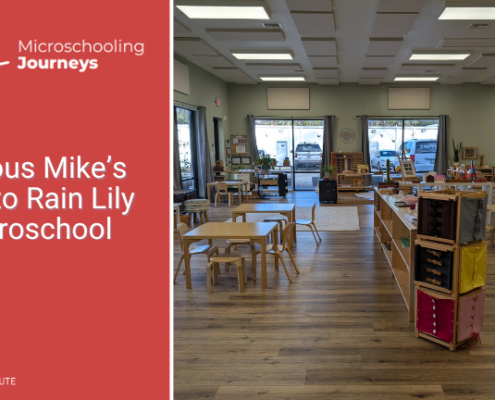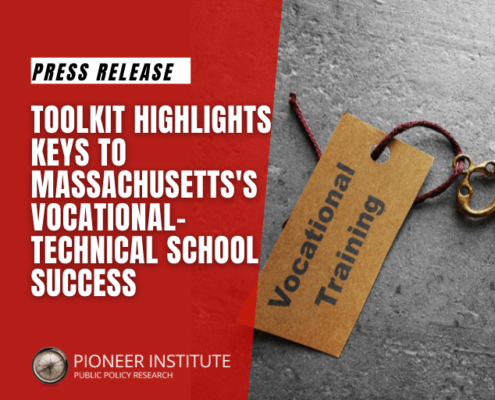New Study Finds Multiple Problems with Push for Social-Emotional Learning in K-12 Education
Little research evidence for, or objective, reliable way to measure SEL’s efficacy; raises significant concerns about student health and privacy
BOSTON – Social-emotional learning (SEL) has been billed as a transformational tool that will propel students to greater academic achievement and personal fulfillment. Unfortunately, as a new Pioneer Institute study on social-emotional leaning makes clear, the research evidence to back up these claims is thin and unpersuasive. Moreover, the risks SEL poses to student privacy and health are significant.
Proponents of SEL call for focusing less on academic content and knowledge in schools, and more on student attributes, mindsets, values, and behaviors. Not only are the goals of SEL ill-defined, but they also raise significant, unanswered questions about what attitudes should be promoted.
“It’s one thing to direct your own moral, ethical, and emotional development or that of your children,” said Jane Robbins, co-author of “Social-Emotional Learning: K-12 Education as New-Age Nanny State.” “But having a government vendor or unqualified public school officials implement an SEL curriculum based on coffee-table psychology is quite another.”
Video: Authors of New Pioneer Report Discuss Social-Emotional Learning
Educational software developers purport to have created products that can determine a number of sensitive personality traits through students’ interaction with digital platforms. Much of this monitoring occurs without the consent of children or their parents. Some software — especially for video gaming — goes beyond assessing traits, and aims to encourage the production of students who are well suited for a workforce development-centered education.
“This technology, when coupled with SEL, will further spread the recent wave of amateur, unqualified psychoanalysis in schools,” said Dr. Karen Effrem, M.D., who co-authored the study with Robbins. “Given the uncertainty around diagnosis and treatment of mental or emotional problems, even by highly trained physicians, the SEL movement runs the risk of further increasing the trend toward dangerous over-diagnosis and over-medication of American schoolchildren.”
SEL and Common Core
Social-emotional learning is being interwoven into the Common Core State Standards and school efforts to implement competency-based education (CBE). CBE digitally documents the attainment of various skills with the goal of demonstrating that a student is ready to move on in his or her “personalized learning path.” SEL and CBE are heavily weighted toward a conception of education as focused on workforce development rather than preparing active, informed citizens.
Government Spending on SEL
Nationally, in 2018, federal, state, and local governments invested more than $30 billion annually to implement SEL in K-12 public schools. The level of expenditure is surprising considering tight public school budgets and the lack of any reliable, objective, researched-based method to measure or assess a student’s personality, values, and mindsets as SEL proponents admit.
Researcher and standards analyst Robbins and Dr. Effrem, a pediatric medical doctor, call for ending taxpayer-funded implementation and expansion of SEL assessments, standards, and other programs in public schools.
The paper also features a foreword by Dr. Kevin Ryan, founder and director emeritus of the Center for Character and Social Responsibility, formerly known as the Center for Advancement of Ethics and Character, at the Boston University School of Education.
Key Levers To Academic Achievement
In place of SEL, the co-authors urge educators to refocus on a key lever that led to Massachusetts’ rise to the highest-performing K-12 state in the nation — genuine academic achievement through state and locally developed academic standards, assessments, and curricula — rather than classroom content of dubious academic value based on pop psychology.
About the Authors
Karen Effrem, M.D. is president of Education Liberty Watch and executive director of the Florida Stop Common Core Coalition. She also serves as national education issues chairman for Eagle Forum and on the board of the Alliance for Human Research Protection. Dr. Effrem’s undergraduate degree is in pharmacy from Purdue University, her medical degree is from Johns Hopkins University, and her pediatric training is from the University of Minnesota. She has provided testimony and analysis on children’s education and health issues for Congress, numerous state legislatures, and for a federal lawsuit regarding unconsented mental screening. She has been interviewed by many local and national media outlets. Her writing on these topics has appeared in The Federalist, Townhall.com, The American Spectator, and Truth in American Education, among others.
Jane Robbins, J.D. is an attorney and independent researcher. She has written extensively about the deficiencies of progressive education and the Common Core, and about threats to student and family privacy posed by government policies such as training students with technology. She has testified about these issues before the legislatures of 12 states and the U.S. Congress. Jane earned an undergraduate degree from Clemson University and a J.D. from Harvard Law School.
Kevin Ryan, Ph.D. is an emeritus professor of education at Boston University. He is the founder and director emeritus of the Center for Character and Social Responsibility. He is a former high-school English teacher and taught on the faculties of Stanford University, the University of Chicago, Harvard University, Ohio State University, and the University of Lisbon. Dr. Ryan was appointed to the Pontifical Academy for the Social Sciences by Pope John Paul II in 2003. He has authored and edited 22 books, primarily on moral education and the education of teachers, and written over 100 articles.
About Pioneer
Pioneer Institute is an independent, non-partisan, privately funded research organization that seeks to improve the quality of life in Massachusetts through civic discourse and intellectually rigorous, data-driven public policy solutions based on free market principles, individual liberty and responsibility, and the ideal of effective, limited and accountable government.
Get Our Common Core Updates
Make a tax-deductible gift below to support our work to improve K-12 academic instruction.
Related Posts















